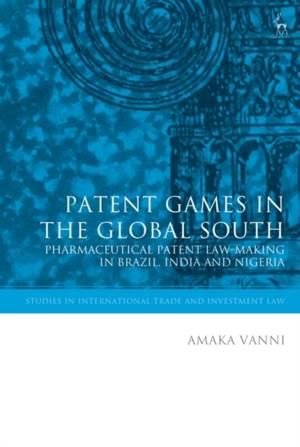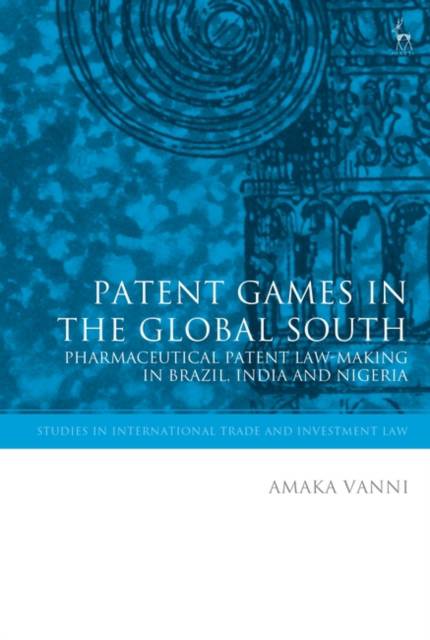
- Afhalen na 1 uur in een winkel met voorraad
- Gratis thuislevering in België vanaf € 30
- Ruim aanbod met 7 miljoen producten
- Afhalen na 1 uur in een winkel met voorraad
- Gratis thuislevering in België vanaf € 30
- Ruim aanbod met 7 miljoen producten
Zoeken
Patent Games in the Global South
Pharmaceutical Patent Law-Making in Brazil, India and Nigeria
Amaka Vanni
€ 129,95
+ 259 punten
Omschrijving
In this thought-provoking analysis, the author takes three examples of emerging markets (Brazil, India, and Nigeria) and tells their stories of pharmaceutical patent law-making.
Adopting historiographical and socio-legal approaches, focus is drawn to the role of history, social networks and how relationships between a variety of actors shape the framing of, and subsequently the responses to, national implementation of international patent law. In doing so, the book reveals why the experience of Nigeria - a country active in opposing the inclusion of IP to the WTO framework during the Uruguay Rounds - is so different from that of Brazil and India. This book makes an original and useful contribution to the further understanding of how both states and non-state actors conceptualise, establish and interpret pharmaceutical patents law, and its domestic implications on medicines access, public health and development. Patent Games in the Global South was awarded the 2018 SIEL-Hart Prize in International Economic Law.Specificaties
Betrokkenen
- Auteur(s):
- Uitgeverij:
Inhoud
- Aantal bladzijden:
- 256
- Taal:
- Engels
- Reeks:
Eigenschappen
- Productcode (EAN):
- 9781509927395
- Verschijningsdatum:
- 6/02/2020
- Uitvoering:
- Hardcover
- Formaat:
- Genaaid
- Afmetingen:
- 156 mm x 234 mm
- Gewicht:
- 539 g

Alleen bij Standaard Boekhandel
+ 259 punten op je klantenkaart van Standaard Boekhandel
Beoordelingen
We publiceren alleen reviews die voldoen aan de voorwaarden voor reviews. Bekijk onze voorwaarden voor reviews.











